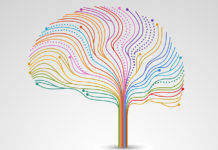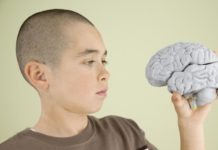Study Deems Support, Not Drugs, Best for Youth at Risk of Psychosis
Research by five U.K. universities across multiple sites for up to two years divided 288 young adults (14-35 years) deemed at risk for psychosis...
8 Years of Mental Health Research Distilled to 4 Infographics
Pictures are worth a thousand words. So I’ve chosen pictures to distill the mountain of mental health research I’ve examined over the last eight years. Three infographics summarize research on psychiatric drugs, and one asserts why I think Integrative Mental Health is the best path available for mental health recovery.
Robin Williams On Antidepressant at Time of Suicide
Robin Williams had "therapeutic" levels of the tetra-cyclic antidepressant mirtazapine in his blood at the time of his suicide, according to the coroner's report...
Psychiatry Defends Its Antipsychotics: A Case Study of Institutional Corruption
Jeffrey LIeberman and colleagues have published a paper in the American Journal of Psychiatry stating that there is no evidence that psychiatric drugs cause long-term harm, and that the evidence shows that these drugs provide a great benefit to patients. A close examination of their review reveals that it is a classic example of institutional corruption, which was meant to protect guild interests.
Vitamin B6 Effective in Reducing Antipsychotic Induced Akathisia
A recent RCT showed that vitamin B6 is as effective as propranolol for the treatment of akathisia.
Harrow + Wunderink + Open Dialogue = An Evidence-based Mandate for A New Standard...
In the wake of the new study by Dutch researcher Lex Wunderink, it is time for psychiatry to do the right thing and acknowledge that, if it wants to do best by its patients, it must change its protocols for using antipsychotics. The current standard of care, which—in practice—involves continual use of antipsychotics for all patients diagnosed with a psychotic disorder, clearly reduces the opportunity for long-term functional recovery.
Abolishing Forced Treatment in Psychiatry is an Ethical Imperative
Forced treatment in psychiatry cannot be defended, neither on ethical, legal or scientific grounds. It has never been shown that forced treatment does more good than harm, and it is highly likely that the opposite is true. We need to abolish our laws about this, in accordance with the United Nations Convention on the Rights of Persons with Disabilities, which virtually all countries have ratified.
Researcher Acknowledges His Mistakes in Understanding Schizophrenia
Sir Robin Murray, a professor at the Institute of Psychiatry, Psychology, and Neuroscience in London, states that he ignored social factors that contribute to ‘schizophrenia’ for too long. He also reports that he neglected the negative effects antipsychotic medication has on the brain.
A Research Timeline for Antipsychotic Drugs
1883 Phenothiazines developed as synthetic dyes
1934 USDA develops phenothiazines as insecticides
1938 Phenothiazines used to kill swine parasites
1949 ...
The Case Against Antipsychotics
This review of the scientific literature, stretching across six decades, makes the case that antipsychotics, over the long-term, do more harm than good. The drugs lower recovery rates and worsen functional outcomes over longer periods of time.
Gradual Tapering is Most Successful for Withdrawal from Antipsychotics
Mixed-Methods study explores the experiences of antipsychotic discontinuation among service users.
Big Pharma Meets Big Diagnosis, Big Courts, and Big Psychiatric Hospitals
Gottstein’s book is The Pentagon Papers of the traditional mental health system, because he exposes a mind-blowing number and variety of cold-blooded, calculating actions on the part of Eli Lilly in trying to hide what it knew to be the devastating effects of its hugely profitable Zyprexa.
Study Shows Clozapine Can Result in Serious Gastrointestinal Complications
A large observational study published in CNS Drugs sheds light on serious adverse effects of the ‘gold standard’ antipsychotic Clozapine.
Exploring Psychiatry’s “Black Hole”: The International Institute on Psychiatric Drug Withdrawal
When Carina Håkansson sent out an invitation for a symposium on "Pharmaceuticals: Risks and Alternatives," some of the world's top scientists, along with experts-by-experience, came from 13 countries to explore better ways to respond to people in crisis.
No More Tears? The Shame of Johnson & Johnson
In 1972, prisoners at Holmesburg Prison in Philadelphia were paid $3 to have their eyes held open with clamps and hooks while Johnson & Johnson's baby shampoo was dropped into them. In 2011, mothers of newborns were arrested when their babies tested positive for exposure to cannabis, a false result caused by the use of Johnson & Johnson’s Head-to-Toe Foaming Baby Wash. Young men have undergone mastectomies to remove breasts grown as a result of Johnson & Johnson antipsychotics, which were used as a result of Johnson & Johnson's criminal promotion of its drugs for off-label purposes. And now, Johnson & Johnson has announced the removal of carcinogenic chemicals from their No More Tears baby shampoo.
Antipsychotics and Brain Shrinkage: An Update
Evidence that antipsychotics cause brain shrinkage has been accumulating over the last few years, but the psychiatric research establishment is finding its own results difficult to swallow. A new paper by a group of American researchers once again tries to ‘blame the disease,’ a time-honoured tactic for diverting attention from the nasty and dangerous effects of some psychiatric treatments. People need to know about this research because it indicates that antipsychotics are not the innocuous substances that they have frequently been portrayed as. We still have no conclusive evidence that the disorders labeled as schizophrenia or psychosis are associated with any underlying abnormalities of the brain, but we do have strong evidence that the drugs we use to treat these conditions cause brain changes.
Withdrawal Symptoms Routinely Confound Findings of Psychiatric Drug Studies
Researchers examine how rapid discontinuation can mimic the relapse of mental health symptoms and confound psychiatric drug studies.
Study Finds Improved Functioning for ‘Schizophrenia’ Without Antipsychotics
Long-term treatment with antipsychotic drugs is currently considered the standard treatment for patients diagnosed with ‘schizophrenia.’ A new study challenges this practice, however. The...
Researchers Warn of “Brain Atrophy” in Children Prescribed Antipsychotics
Researchers discuss the evidence that antipsychotic medications may cause brain atrophy in children, whose brains are still developing.
Long-Term Antipsychotics: Making Sense of the Evidence in the Light of the Dutch Follow-Up...
In the 1950s, when the drugs we now call ‘antipsychotics’ first came along, psychiatrists recognised that they were toxic substances that happened to have the ability to suppress thoughts and emotions without simply putting people to sleep in the way the old sedatives did. The mental restriction the drugs produced was noted to be part of a general state of physical and mental inhibition that at extremes resembled Parkinson’s disease. Early psychiatrists didn’t doubt that this state of neurological suppression was potentially damaging to the brain.
Olanzapine Can Cause Serious Skin Reaction, FDA Warns
The US FDA has issued a new warning for the atypical antipsychotic Olanzapine, also known by the brand names Zyprexa and Symbyax. The agency...
Mental Health Professionals and Patients Often Disagree on Causes of Symptoms
A new study finds that clinicians’ disregard for mental health patients’ insight into their own condition may be detrimental to treatment.
Psychiatry Ignores an Elephant in the Room
Large cohort studies of people with a first-episode psychosis provide a unique opportunity for finding out why so many young people with schizophrenia spectrum disorders die at a young age. However, it seems that those psychiatrists who have access to the mortality data generally do not want the facts to come out.
Better Outcomes Off Medication for Those Recovered from First-Episode Schizophrenia
A new study has found that of 10 people who were fully recovered from their first episode of schizophrenia (FES), those not taking antipsychotics did better in terms of cognitive, social, and role functioning—and reached full recovery more quickly.
Adderall Use Associated with Increased Risk of Psychosis
Twice as many teenagers with ADHD experienced severe psychosis when taking Adderall, as compared to Ritalin, according to a new study.

























